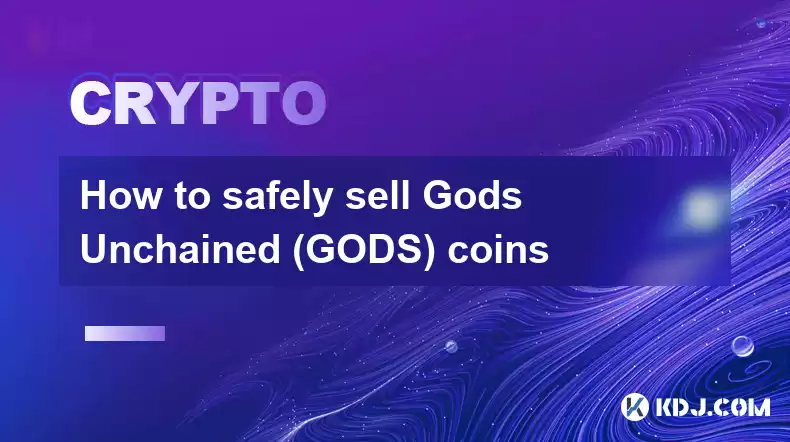-
 Bitcoin
Bitcoin $118300
-3.52% -
 Ethereum
Ethereum $4554
-3.81% -
 XRP
XRP $3.090
-5.78% -
 Tether USDt
Tether USDt $1.000
0.04% -
 BNB
BNB $842.0
-0.27% -
 Solana
Solana $194.6
-3.24% -
 USDC
USDC $0.9998
0.00% -
 TRON
TRON $0.3600
-0.20% -
 Dogecoin
Dogecoin $0.2243
-7.95% -
 Cardano
Cardano $0.9066
2.57% -
 Hyperliquid
Hyperliquid $45.89
-4.06% -
 Chainlink
Chainlink $22.49
-5.34% -
 Stellar
Stellar $0.4261
-6.01% -
 Sui
Sui $3.753
-5.87% -
 Bitcoin Cash
Bitcoin Cash $592.1
-3.33% -
 Ethena USDe
Ethena USDe $1.001
-0.01% -
 Hedera
Hedera $0.2502
-5.51% -
 Avalanche
Avalanche $23.71
-6.22% -
 Litecoin
Litecoin $121.8
-6.36% -
 Toncoin
Toncoin $3.416
-2.58% -
 UNUS SED LEO
UNUS SED LEO $9.323
0.85% -
 Shiba Inu
Shiba Inu $0.00001291
-6.93% -
 Uniswap
Uniswap $10.91
-9.13% -
 Polkadot
Polkadot $4.010
-5.38% -
 OKB
OKB $93.46
-9.08% -
 Dai
Dai $0.9999
0.00% -
 Bitget Token
Bitget Token $4.559
-4.99% -
 Cronos
Cronos $0.1545
-6.93% -
 Ethena
Ethena $0.7362
-5.51% -
 Aave
Aave $311.6
-4.32%
How to safely sell Gods Unchained (GODS) coins
Before selling GODS coins, research and select a reputable crypto exchange that supports GODS trading and offers robust security measures.
Dec 26, 2024 at 12:22 am

Key Points
- Understanding the GODS token and its characteristics
- Selecting a reputable crypto exchange
- Connecting your wallet to the exchange
- Placing a sell order for GODS
- Monitoring and managing your sell order
- Storing your GODS tokens securely
Step-by-Step Guide to Safely Selling GODS Coins
- Learn about GODS Token:
GODS is the native ERC-20 utility token of Gods Unchained, a decentralized trading card game. It serves multiple functions within the game, including providing rewards, enabling participation in governance, and facilitating transactions. Understanding these characteristics is essential for making informed trading decisions.
- Research and Select a Crypto Exchange:
Choose a reliable and established crypto exchange that supports GODS trading. Factors to consider include reputation, trading fees, security measures, and user-friendliness. Some reputable exchanges that support GODS include Binance, Coinbase, and Kraken.
- Connect Your Wallet:
Connect a supporting crypto wallet, such as MetaMask, to your chosen exchange. This will allow you to interact with the exchange's trading platform and store your GODS tokens securely. Ensure you follow proper security protocols and backup your wallet information.
- Place a Sell Order:
Once you have connected your wallet, navigate to the GODS trading pair (e.g., GODS/USDT). Specify the amount of GODS you want to sell, choose the order type (e.g., market order or limit order), and set a price. A market order will execute immediately at the current market price, while a limit order will execute only when the price reaches your specified limit.
- Monitor and Manage Your Sell Order:
Monitor your sell order's progress in the open orders tab. You can modify or cancel your order as needed. If your order is partially filled, the remaining amount will continue to be displayed until it is fully executed.
- Store Your GODS Tokens:
Once your sell order is filled, your GODS tokens will be credited to your exchange wallet. Consider transferring your tokens to a hardware wallet for enhanced security and long-term storage. Hardware wallets provide offline storage, reducing the risk of hacking and security breaches.
FAQs
- What is the best way to store GODS tokens?
The best way to store GODS tokens is in a hardware wallet. Hardware wallets are physical devices that store your private keys offline, making them extremely secure. Some popular hardware wallets include Ledger and Trezor.
- How long does it take to sell GODS tokens?
The time it takes to sell GODS tokens depends on the type of order you place. A market order will execute immediately, while a limit order may take longer if the price does not reach your specified limit.
- Can I sell GODS tokens anonymously?
Yes, it is possible to sell GODS tokens anonymously by using a decentralized exchange (DEX). DEXs allow you to trade directly with other users without the need for KYC verification. However, DEXs can be less user-friendly and may have lower trading volumes compared to centralized exchanges.
- What are the differences between a market order and a limit order?
A market order executes immediately at the current market price, while a limit order only executes when the price reaches your specified limit. Market orders are faster and easier to execute but may result in less favorable prices, especially in volatile markets. Limit orders give you more control over the price at which you sell, but they may take longer to execute or may not execute at all if the price does not reach your limit.
- What are some of the risks associated with selling GODS tokens?
Some of the risks associated with selling GODS tokens include price volatility, exchange security breaches, and market manipulation. It is important to understand the risks and take appropriate precautions, such as storing your tokens in a hardware wallet and using reputable exchanges.
Disclaimer:info@kdj.com
The information provided is not trading advice. kdj.com does not assume any responsibility for any investments made based on the information provided in this article. Cryptocurrencies are highly volatile and it is highly recommended that you invest with caution after thorough research!
If you believe that the content used on this website infringes your copyright, please contact us immediately (info@kdj.com) and we will delete it promptly.
- Kazakhstan's Crypto Leap: Bitcoin ETF and Central Asia's Digital Finance Future
- 2025-08-13 12:45:19
- BlockDAG Presale Blazes Past $371M: Fundraising Frenzy Fuels Crypto Sensation
- 2025-08-13 13:05:21
- Meme Coins: Chasing the 2025 Surge – Which Will Moonshot?
- 2025-08-13 10:25:23
- Bitcoin's Wild Ride: Rally, Pullback, and What's Next
- 2025-08-13 10:25:23
- Bitcoin, Bitmax, and Institutional Demand: A New Era of Crypto Investment
- 2025-08-13 10:45:12
- Solana, ROAM, and Airdrops: What's the Buzz in 2025?
- 2025-08-13 11:35:13
Related knowledge

How to purchase Aragon (ANT)?
Aug 09,2025 at 11:56pm
Understanding Aragon (ANT) and Its PurposeAragon (ANT) is a decentralized governance token that powers the Aragon Network, a platform built on the Eth...

Where to trade Band Protocol (BAND)?
Aug 10,2025 at 11:36pm
Understanding the Role of Private Keys in Cryptocurrency WalletsIn the world of cryptocurrency, a private key is one of the most critical components o...

What is the most secure way to buy Ocean Protocol (OCEAN)?
Aug 10,2025 at 01:01pm
Understanding Ocean Protocol (OCEAN) and Its EcosystemOcean Protocol (OCEAN) is a decentralized data exchange platform built on blockchain technology,...

How to invest in Kyber Network Crystal v2 (KNC)?
Aug 12,2025 at 05:21pm
Understanding Kyber Network Crystal v2 (KNC)Kyber Network is a decentralized liquidity hub built on the Ethereum blockchain that enables instant token...

Where can I buy UMA (UMA)?
Aug 07,2025 at 06:42pm
Understanding UMA and Its Role in Decentralized FinanceUMA (Universal Market Access) is an Ethereum-based decentralized finance (DeFi) protocol design...

How to sell my Ren (REN) tokens?
Aug 13,2025 at 11:35am
Understanding REN Tokens and Their Role in Decentralized FinanceREN is an ERC-20 token that powers the Ren protocol, a decentralized interoperability ...

How to purchase Aragon (ANT)?
Aug 09,2025 at 11:56pm
Understanding Aragon (ANT) and Its PurposeAragon (ANT) is a decentralized governance token that powers the Aragon Network, a platform built on the Eth...

Where to trade Band Protocol (BAND)?
Aug 10,2025 at 11:36pm
Understanding the Role of Private Keys in Cryptocurrency WalletsIn the world of cryptocurrency, a private key is one of the most critical components o...

What is the most secure way to buy Ocean Protocol (OCEAN)?
Aug 10,2025 at 01:01pm
Understanding Ocean Protocol (OCEAN) and Its EcosystemOcean Protocol (OCEAN) is a decentralized data exchange platform built on blockchain technology,...

How to invest in Kyber Network Crystal v2 (KNC)?
Aug 12,2025 at 05:21pm
Understanding Kyber Network Crystal v2 (KNC)Kyber Network is a decentralized liquidity hub built on the Ethereum blockchain that enables instant token...

Where can I buy UMA (UMA)?
Aug 07,2025 at 06:42pm
Understanding UMA and Its Role in Decentralized FinanceUMA (Universal Market Access) is an Ethereum-based decentralized finance (DeFi) protocol design...

How to sell my Ren (REN) tokens?
Aug 13,2025 at 11:35am
Understanding REN Tokens and Their Role in Decentralized FinanceREN is an ERC-20 token that powers the Ren protocol, a decentralized interoperability ...
See all articles

























































































